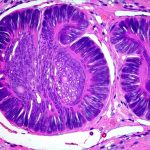Many people experience persistent nausea and indigestion, often attributing it to stress, dietary choices, or minor digestive upsets. While these factors certainly play a role for many, what’s less commonly considered—and frequently overlooked by conventional medicine—is the potential involvement of undiagnosed parasitic infections. These infections can masquerade as common gastrointestinal complaints, leading to years of frustrating symptoms and misdiagnosis. The subtle, often cyclical nature of parasitic infection makes it difficult to identify without specific testing, contributing to a significant underestimation of its prevalence and impact on overall health.
The human body is remarkably resilient, but chronic parasitic load places a substantial burden on the immune system and digestive processes. This ongoing struggle can manifest as a wide array of symptoms beyond just nausea and indigestion, including fatigue, nutrient deficiencies, skin problems, and even mood disorders. The complex interplay between parasites, the gut microbiome, and the host’s immune response makes accurate diagnosis challenging, requiring practitioners who are knowledgeable about alternative testing methods and holistic approaches to health. It’s important to remember that these infections aren’t always linked to travel to exotic locations; they can be contracted locally through contaminated food or water, contact with pets, or even from person-to-person transmission.
The Cycle of Symptoms: How Parasites Disrupt Digestion
Parasitic infections often disrupt the normal functioning of the digestive system in several ways. They physically irritate the gut lining, leading to inflammation and impaired nutrient absorption. Some parasites directly feed on nutrients meant for the host, exacerbating deficiencies. Others produce toxins that further damage the intestinal barrier, increasing permeability – commonly known as “leaky gut.” This compromised barrier allows undigested food particles and toxins to enter the bloodstream, triggering immune responses and systemic inflammation. – Common symptoms stemming from these disruptions include bloating, gas, diarrhea or constipation, abdominal pain, and a persistent feeling of fullness even after eating small amounts of food. – The cyclical nature of parasitic infections can also cause intermittent symptom flare-ups followed by periods of relative calm, making it difficult to correlate symptoms with specific dietary triggers or lifestyle factors. This is because parasites often have distinct life cycles that involve different stages of development and varying levels of activity within the host.
Furthermore, the presence of parasites can significantly alter the composition and function of the gut microbiome – the trillions of bacteria, fungi, and other microorganisms that reside in our digestive tract. A healthy microbiome is crucial for proper digestion, immune regulation, and overall health. Parasitic infections can disrupt this delicate balance, leading to an overgrowth of harmful bacteria and a decrease in beneficial ones. This dysbiosis further weakens the gut barrier, compromises immunity, and contributes to chronic inflammation. – The resulting imbalance can create a vicious cycle where parasites thrive on the altered gut environment while simultaneously exacerbating digestive symptoms and weakening the body’s ability to fight off infection. How Gut Health can be a major factor in these cycles.
Identifying the Hidden Culprit: Testing & Diagnosis
Conventional diagnostic tests for parasitic infections often focus on identifying parasite eggs or larvae in stool samples. However, these tests have limitations as many parasites don’t consistently shed eggs, and some stages of the parasitic life cycle may not be detectable through microscopic examination. As a result, false negatives are common, leading to missed diagnoses. – More comprehensive testing options include: Comprehensive Digestive Stool Analysis (CDSA) which assesses parasite antigens, enzymes, and microbiome balance; PCR-based stool tests offering higher sensitivity for detecting parasitic DNA; and blood tests looking for antibodies against specific parasites. It’s crucial to work with a healthcare practitioner familiar with these alternative testing methods to ensure accurate diagnosis. Recognizing Food Allergies can also help pinpoint the cause of digestive issues.
It’s important to note that symptom presentation can vary widely depending on the type of parasite, the individual’s immune status, and the location of infection within the digestive tract. Nausea and indigestion are common symptoms across many parasitic infections, but specific parasites may be associated with other distinctive signs. For example, Giardia lamblia often causes greasy stools and excessive gas, while Blastocystis hominis can contribute to bloating, abdominal pain, and fatigue. – A thorough medical history, including travel history, dietary habits, pet ownership, and exposure to potentially contaminated water sources, is essential for guiding diagnostic testing and narrowing down the possible culprits.
Beyond Stool Tests: Exploring Alternative Diagnostic Approaches
The limitations of traditional stool tests have spurred a growing interest in alternative diagnostic approaches that offer improved sensitivity and accuracy. – Microscopic stool examination with special stains can help identify certain parasites that are difficult to detect using standard methods. – Live stool analysis allows for the direct observation of parasite motility, providing a more definitive diagnosis. – Furthermore, newer technologies like flow cytometry and immunofluorescence assays are being used to identify parasitic antigens in stool samples with greater precision.
However, it’s important to emphasize that no single diagnostic test is foolproof. A comprehensive approach that combines multiple testing methods, along with a thorough clinical evaluation, is often necessary for accurate diagnosis. – Practitioners specializing in functional medicine or integrative healthcare are typically more familiar with these alternative testing options and can provide personalized recommendations based on individual patient needs. It’s also important to be aware of the potential for false positives; therefore, results should always be interpreted in conjunction with clinical symptoms and medical history. Understanding Silent Reflux can also mimic these types of symptoms.
The Role of Gut Microbiome Analysis in Parasitic Infection
The gut microbiome plays a crucial role in protecting against parasitic infections and influencing symptom presentation. – Dysbiosis, or an imbalance in the gut microbiome, can weaken the immune system, impair digestive function, and create a favorable environment for parasite proliferation. Analyzing the composition of the gut microbiome through stool testing can help identify specific imbalances that may be contributing to parasitic infection and guide targeted interventions.
Restoring a healthy gut microbiome is often an essential component of treatment for parasitic infections. – Strategies include: probiotic supplementation with strains known to combat parasites; prebiotic-rich foods that nourish beneficial bacteria; and dietary modifications aimed at reducing inflammation and supporting gut health. The goal is to create a robust and resilient gut ecosystem that can effectively resist parasite colonization and promote optimal digestion.
Addressing the Root Cause: Holistic Treatment Strategies
Treating parasitic infections requires a holistic approach that addresses both the parasite itself and the underlying factors that contributed to infection. – Antiparasitic herbs like wormwood, black walnut hull, and clove bud have been traditionally used to combat parasites, but should be used under the guidance of a qualified healthcare practitioner due to potential side effects and interactions with medications. – Dietary changes, such as reducing sugar intake, eliminating processed foods, and increasing fiber consumption, can help starve parasites and support gut healing.
Beyond antiparasitic treatment, it’s crucial to address any underlying immune deficiencies or digestive imbalances that may have predisposed the individual to infection. This may involve: supplementation with vitamins and minerals to correct nutrient deficiencies; stress management techniques to reduce cortisol levels and enhance immune function; and lifestyle modifications such as regular exercise and adequate sleep to promote overall health. – A long-term, individualized treatment plan is essential for achieving lasting relief from parasitic infections and preventing recurrence. It’s also important to address potential re-exposure risks by ensuring access to clean water and practicing good hygiene. How Anxiety can contribute to these symptoms is also important to consider. – Additionally, factors like dehydration and long-term acid exposure can significantly impact digestive health, potentially damaging the esophagus and affecting eating habits. – Managing symptoms during specific periods, such as pregnancy or postpartum, is also a key aspect of holistic care.


















